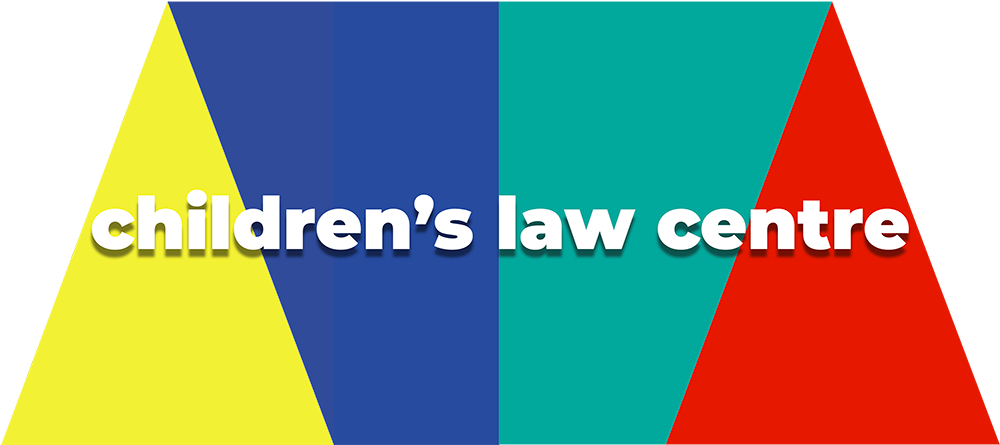Treatment of Disabled Children and Adults Should Bring ‘Shame’
- Systemic failings worsened by the impact of COVID-19
- Daily life still impossible for many as we emerge from the pandemic
07 April 2022
The Children’s Law Centre (CLC) and the National Autistic Society NI have warned that disabled children and adults are being discriminated against because of the lack of adequate service provision to meet their needs. The charities, who advocate for people with complex and high support needs, witnessed a sharp increase in the number of people, particularly children, who have lost access to vital services in the past number of years.
However, both charities insist the systemic failings have been there for a long time, and only worsened by the response to the pandemic. While others in society return to everyday life, many disabled children and adults have been ignored and left isolated, living restricted lives and having their freedoms and autonomy severely curtailed.
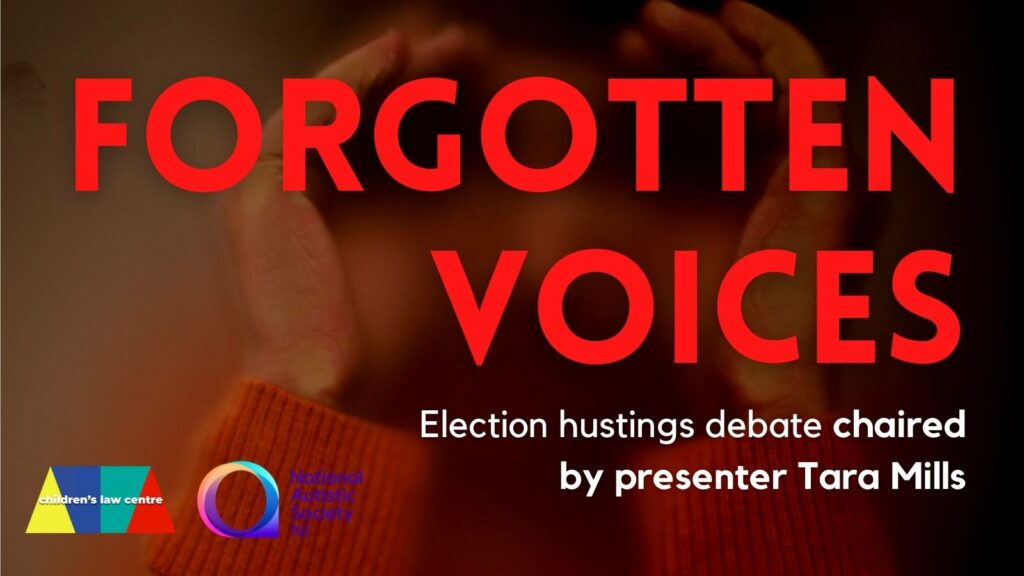
Speaking ahead of a special hustings debate titled ‘Forgotten Voices’, the charities called for urgent and meaningful action to address the failings.
CLC Mental Health Solicitor, Eamonn McNally, said: “We should be horrified and ashamed at the treatment of disabled children with complex needs. What some young people, as well as their parents and carers, are having to go through is nothing short of a disgrace in a modern society. How can they expect to live their lives without access to the services that make that possible?
“We know from recent reports that the health and well-being of disabled people has not improved as restrictions have lifted, and that their access to health services continues to remain limited. This is reflected in our everyday casework at CLC, which has grown in both size and complexity.
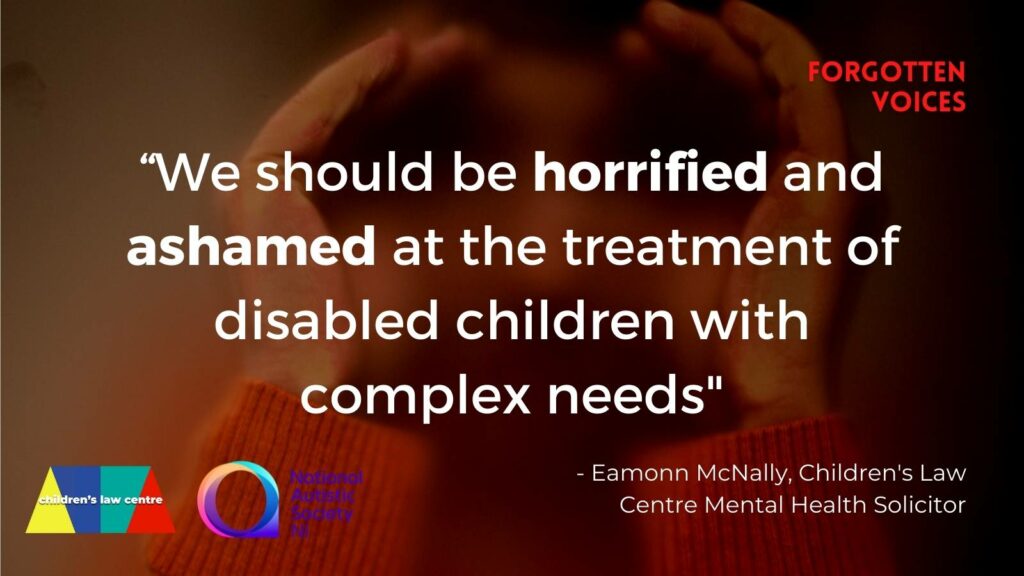
“Respite services have been crippled for many years and the impact of the pandemic has exposed the inequalities for disabled children and adults. But we can’t hide behind the pandemic or make excuses, these failings have long been apparent. Disabled children have a wide range of legal rights and those rights include access to services that allow them to live a full and dignified life, as well as services to support carers by providing them with the help they need to maintain care for their loved ones within the family home.
“The failure to provide adequate services to children with complex needs and their families breaches a range of fundamental human rights.”
Shirelle Stewart, Director of National Autistic Society NI, added: “As we emerge from the pandemic, much of society is feeling the benefits of a return to normal life. Yet this isn’t the case for many disabled adults and children with complex care needs, including many autistic people. Many are still facing a daily struggle to cope, as services remain wholly inadequate in providing for their needs. In some cases, already stretched services have disappeared completely.
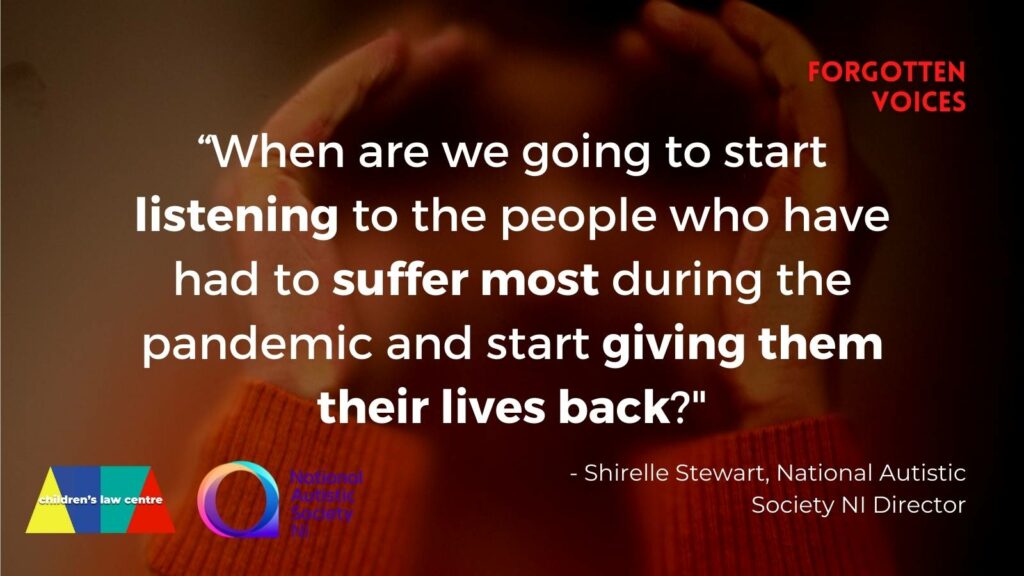
“When are we going to start listening to the people who have had to suffer most during the pandemic and start giving them their lives back? We need to listen to the voices of people with complex needs, their families and carers. Their concerns need to be acted upon by the government and public authorities, recognising their protected status under Section 75 of the Northern Ireland Act. We need to see a significant drive towards joined up, properly planned and funded cross-departmental work, including the collection of disaggregated data to assess the level of unmet need.
“Disability discrimination in education settings, including informal exclusion, part-time schooling or no schooling, lack of required therapeutic input, failure to provide school transport to disabled children with complex needs and unauthorised restrictive practices must end. “Anything less than swift and targeted action by government departments and public authorities to address these unmitigated inequalities will be an abject failure of human rights compliance.”
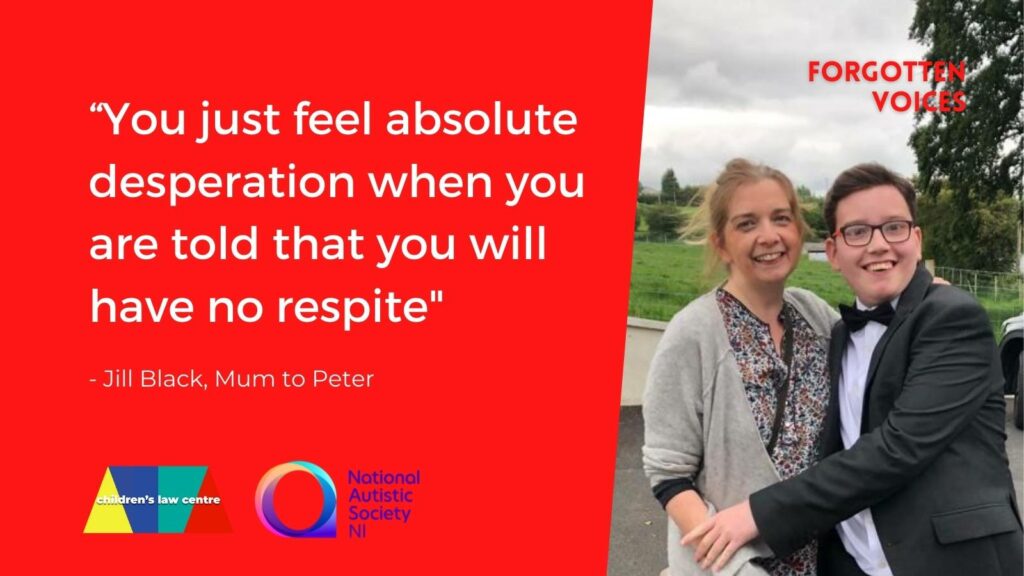
Case Story
Jillian Black is mum to Peter who is nearly twenty. Peter is autistic and has a severe learning disability, ADHD and uncontrollable epilepsy, Peter can often become distressed because of his profound disability, which can result in harm to himself, others or property. When Peter was in children’s services he accessed four overnights a month. Although this was not a lot, it provided a welcome break to providing the 24/7 care that Peter needs.
When Peter turned 18 he entered adult services and the family have never been told what their assessed respite is. Since becoming an adult, he has only had four nights respite, two in December 2020 and two in spring 2021. The respite unit he was using had to be closed to house an adult on an emergency placement.
Peter’s mum, Jillian, said:
“You just feel absolute desperation when you are told that you will have no respite. We don’t begrudge our caring role but providing care on a 24/7 basis with no breaks really takes its toll. There is only me and his dad, as his sister is at university, so we are exhausted. No one would expect anyone to work all that time with no breaks.
“Peter is at the age where he needs to become less dependent on his mum and dad and allow others to help, but the lack of respite is not allowing this transition to happen. We don’t know what will happen in the future.”
